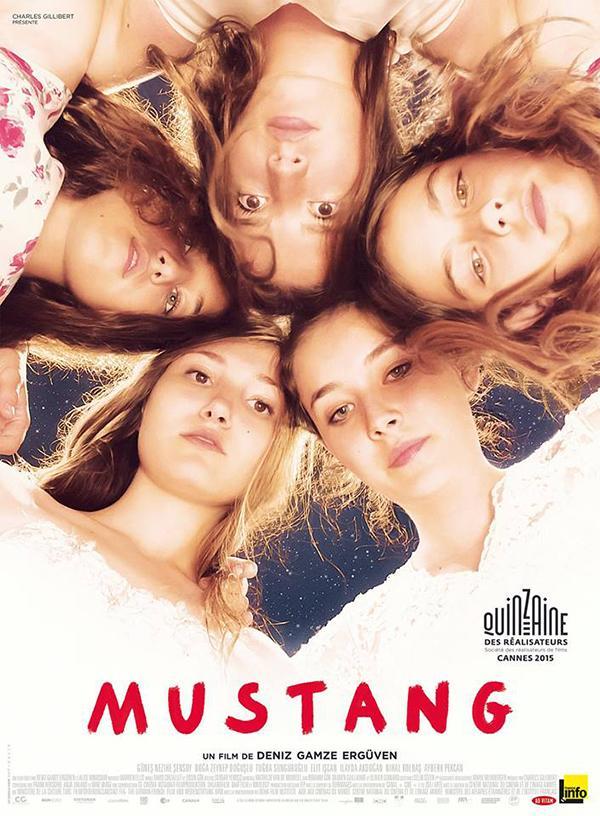‘Mustang’ confronts horror of gender oppression in Turkey
2015 film, “Mustang” follows five orphaned sisters living in Turkey dealing with the strict rule of their extended family members.
November 19, 2015
Deniz Gamze Ergüven’s “Mustang” tells the compelling story of five sisters in modern Turkey who are groomed for arranged marriages. The story opens with the five teenage girls playing in the ocean with boys of their age, an act the local townspeople perceive to be crude and sexual. As a result, the girls, who are raised by their abusive uncle, are dragged from the Eden-like garden nearby and beaten by their grandmother who claims they have disgraced the family and ruined their reputation for marriage.
This film is France’s official submission to the Academy Awards for Best Foreign Language Film, and for good reason. It reminds viewers of the difficulties and expectations imposed on young women, suggesting that oppression and inequality can be fought by even the most unlikely heroes.
“Mustang” develops into an emotionally packed tale of survival as the girls are locked into their home, described as a “wife factory” by the protagonist, Lale, played by Günes Sensoy. They are pulled from school and taught to cook, clean and act ladylike in order to attract a suitable husband. They have no allies as they go through this rigorous training, though there is a glimpse of sympathy spotted in their grandmother’s actions. As they are trained to accept the unjust norms, their grandmother seems to empathize with their longing for freedom despite having accepted long ago that this is the way things are.
In Ergüven’s first feature-length film, she boldly decided to use a cast of inexperienced actors. The most impressive of this cast is 14-year old Sensoy, who plays the main character Lale. In her first role on screen, Sensoy rages against the strict limitations on arranged marriages with an accuracy that transcends language barriers.
Though there is controversy in Turkey’s current political landscape — their future in the European Union is being questioned for Human Rights violations — the issue of women’s rights has gained very little traction there. Ergüven is looking to call attention to a matter of intense oppression that is often overlooked. The story shows the process of young girls reluctantly but assuredly being socialized into this misogynistic culture, but with the rebellion of the youngest siblings there is hope for the future. The audience is able to believe Lale’s resistance signifies a new era of opposition to these corrupt norms, and as her generation matures it is plausible to believe that in nations where women are repressed their rights will soon be recognized.
“Mustang” opens Friday, Nov. 20 in select theaters.
Email Ryan Matera at [email protected].












































































































































